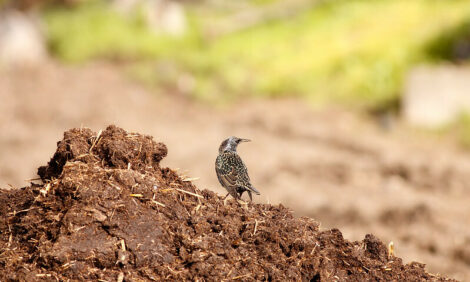



International Egg and Poultry Review
By the USDA's Agricultural Marketing Service - This is a weekly report looking at international developments concerning the poultry industry, this week looking at the latest in the EU.
The European Union Decision Covering Poultry and Egg Imports
On October 25, 2006, the Official Journal of the European Union
published Commission Decision 2006/696/EC laying down a list of
third countries from which poultry, hatching eggs, day-old chicks, meat
of poultry, ratites and wild game-birds, egg and egg products and
specified pathogen-free eggs may be imported into and transit through
the Community and the applicable veterinary certification conditions,
and amend Decisions 93/342/EEC, 200/585/EC and 2003/812/EC.
The new directive consolidates legislation from some 13 different
directives and includes the list of third countries and regions within
them authorized to export these products to the EU. The aim of this
new Decision is to harmonize and simplify the import conditions for
poultry and poultry products and to make the EU rules in this area
clearer and more transparent for the EU’s trade partners. Third
countries have 6 months from the day of publication of this Decision
to adapt to the new conditions set out in the veterinary certificates.
Eggs, egg products, meat, minced meat and mechanically separated
meat of poultry, ratites and wild game-birds may be only be imported
into the Community from a third country or a part thereof listed in
columns 1 and 3 of the table in Part I of Annex II where column 4 of that
table provides for a model veterinary certificate for eggs, egg products,
meat, minced meat and mechanically separated meat of poultry, ratites
and wild game-birds.
EU: New Quotas and Tariff
s
The European Commission concluded an agreement with Brazil on a
new regime for imports of salted poultry meat, preparations of turkey
meat and cooked chicken into the EU. The Commission conducted
negotiations with WTO Members having negotiating rights: Brazil, for
salted poultry meat (HS code 0210 99 39), for turkey meat (HS code
1602 31) and for cooked chicken meat (HS1602 32 19). Negotiations
with Thailand have not been concluded.
The agreement modifies the current bound tariff rate concession for
the three items in question and foresees the creation of three new
tariff rate quotas.
Salted meat preparations have a current bound tariff rate of 15.4%
with no volume restrictions. The new concession keeps the tariff rate
at 15.4% but limits imports of salted meat to 264,245 metric tons. The
out-of-quota rate will be 1,300€/ton. The allocation for Brazil will be
170,807 MT.
Turkey meat preparations have a current tariff rate of 8.5% with no
volume restrictions. The new concession keeps the tariff rate at 8.5%
but limits imports of turkey meat preparations to 103,896 MT. Any
amount over the limit will be subject to a rate of 1,024€/ton. Brazil’s
allocation will be 92,300 MT.
Cooked chicken has a current tariff rate of 10.9% and under the new
concessions there will be a limited of 230,453 MT with an out-ofquota
rate of 1,024€/ton. Brazil’s allocation will be 73,000 MT.
The European Union imports about 80% of all processed broiler
exports from Brazil.
Thai chicken producers are worried about the EU’s new chicken import
quota. Thailand will be left with a maximum quota of around 157,000
MT after Brazil’s allocation of 73,000 MT out of a total of 230,453 MT.
The EU is Thailand’s second biggest export market after Japan.
Thailand’s further processed broiler meat exports to the EU totaled
106,503 MT in 2005, 65% of the EU’s total imports of cooked chicken
(163,120 MT in 2005). Thai exports in 2003 were 61,105 MT which
was 60% of EU imports of 101,495 MT cooked chicken. Thai exports
grew 75% between 1003 and 2005.
For the first seven months in 2006, Thailand’s further processed broiler
meat exports to the EU totaled 67,551 MT compared to 55,951 for
January-July 2005. According to WTO rules the negotiations could
possibly lead to compensation for Thailand for loss of trade resulting
from the changes.
Thai exports of uncooked poultry products to the EU have been
suspended since January 2004 due to the presence of avian influenza
in Thailand. Cooked products are not affected by this measure. Earlier
this year the EU announced they would prolong the ban on raw
(uncooked) poultry products from Thailand and other HPAI affected
Asian countries until 2007.
Source: European Commission Press Release, USDA/FAS, news
wires
To view the full report, including tables please click here
ThePoultrySite News Desk








